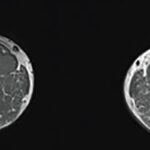Despite an expanding armamentarium of disease-modifying treatments for rheumatoid arthritis (RA), some patients with RA remain symptomatic.1 Current treatment guidelines from both the ACR and the European Alliance of Associations for Rheumatology (EULAR) recommend treat-to-target strategies to achieve remission or low disease activity, and patients want to feel better.2,3 So how can we best help…








